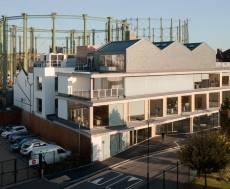April 19, 2016
Three day working week is ideal for the over 40s, claim researchers 0
 A new report from Australian academics suggests that workers aged over 40 perform better and have generally improved wellbeing if they enjoy a three day working week. Called Use It Too Much and Lose It? The Effect of Working Hours on Cognitive Ability, the study of 6,500 men and women was carried out by researchers at the Melbourne Institute of Applied Economics and Social Research at the University of Melbourne. They gauged a range of subjective and objective factors based on data drawn from the Australian government’s Household, Income and Labour Dynamics survey as well as looking at work habits and factors such as type of employment, lifestyle and family. The researchers asked participants in the study to take part in cognitive tests the results of which suggest that the optimum working week is around 25 hours. Conversely the study suggest that the cognitive ability of those working about 60 hours a week can be lower than those who are not employed at all.
A new report from Australian academics suggests that workers aged over 40 perform better and have generally improved wellbeing if they enjoy a three day working week. Called Use It Too Much and Lose It? The Effect of Working Hours on Cognitive Ability, the study of 6,500 men and women was carried out by researchers at the Melbourne Institute of Applied Economics and Social Research at the University of Melbourne. They gauged a range of subjective and objective factors based on data drawn from the Australian government’s Household, Income and Labour Dynamics survey as well as looking at work habits and factors such as type of employment, lifestyle and family. The researchers asked participants in the study to take part in cognitive tests the results of which suggest that the optimum working week is around 25 hours. Conversely the study suggest that the cognitive ability of those working about 60 hours a week can be lower than those who are not employed at all.





































April 12, 2016
Women who feel valued at work will help close the gender pay gap 0
by Mark Bull • Comment, Flexible working, Wellbeing, Workplace
More →